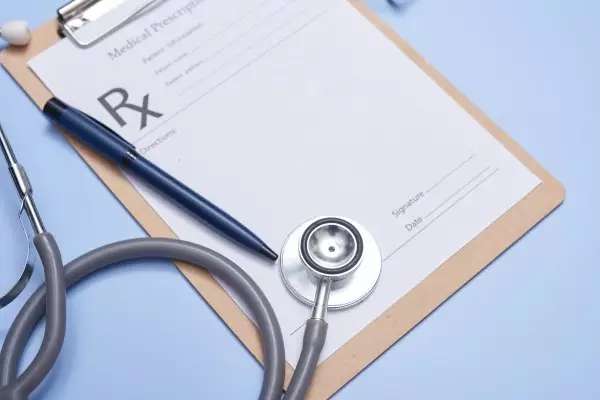If you or someone you love is struggling with drug addiction, it's important to know there is hope. Addiction is a disease, and like any other disease, it can be treated. Many effective treatment options are available, and the first step is to find the right one for you or your loved one.
An increasing number of people are falling prey to drug addiction. The addiction rate is rising as users get access to drugs more easily. Most people who become addicted to drugs start by trying them recreationally, not realizing that they could develop a habit and an inability to stop using them.
It is natural to feel afraid or ashamed if you or someone you love has a drug problem. It can seem like everyone knows about it, making you think everyone will know about it too.
However, this feeling comes from a sense of being alone and not fitting in with other people. But despite the negative feelings and emotions that come with drug addiction, there is also hope for recovery.
This article will help you understand why so many get addicted to drugs and how you can overcome your addiction and lead a happier life.

What Is Driving The Rise In Drug Addiction?
The factors driving the rise in drug addiction include:
Mental health issues. More people have mental health problems such as anxiety, depression, and stress. The main reason for this is an increase in the pace and intensity of life. This can make it harder to cope with life and make people more likely to use drugs to cope and self-medicate.
Availability of drugs. Drugs such as heroin and cocaine are cheaper and easier to get than they used to be. There is also an increase in synthetic drugs. These are often cheaper and more potent than natural drugs, so it’s easier to get addicted.
Social Media and Social Acceptability during adolescence/early adulthood. Some genres of the entertainment industry glamorize drug use. That is nothing new. However, what is relatively “new” is that the internet, the advent of social media, the ubiquitous use of smart phones, and relatively normal use of smartphones by the age of middle school, presents a very seductive and seemingly all-fun-no-harm view of various types of drug use to a population that is still experiencing brain development and also has a high need for peer acceptance. Marijuana use (which arguably has detrimental effects on the brain development of adolescents) narcotics use, club drugs, stimulant use, etc. are all prolific on the internet and presented as culturally “normal” and ostensibly low-risk with little mention about how addiction works or the potential downside to drug use in most popular culture contexts.
Changes in how drugs are used. In the past, people usually took drugs by smoking or injecting them. Now, more people are taking drugs orally. This is because drugs are now usually made into tablets or capsules. Taking drugs orally is less likely to cause overdose, so people are more likely to take more of the drug to get the same effect.
What Happens When Someone Becomes Addicted To Drugs?
Drugs change the way your brain functions. They alter their reward system, which is the system that regulates your feelings of pleasure. When you consume drugs, your brain cannot process the chemicals that make you feel pleasure.
The only way to overcome this is through continued drug use. Drug users will experience intense cravings when they don’t use their substance of choice.
They will feel stressed, anxious, and unable to control their emotions without the help of the drug. Drug users will also experience an intense desire to use their drug more frequently.
This will happen even when they are not experiencing withdrawal symptoms. Eventually the brain has difficulty processing pleasure, pain, joy, excitement, and other normal emotions in the same way. Pleasure may become more and more difficult to experience without the substance or more of the same substance. In some users this is a slow and gradual process but for others it may occur within a matter of weeks or a few months.
Drug abuse will also lead to changes in your physical appearance. People who abuse substances often look tired, have dark circles under their eyes and are thin.
This is because the drugs change the way your body processes nutrients. Drug users will also have difficulty sleeping and may suffer from malnutrition.
The Dangers Of Drug Addiction
Drug addiction is a serious problem because it can lead to:
Relationship Problems
Drug addiction can ruin relationships. The drug user will often lie, steal, and cheat to get money to buy drugs. They may also neglect their family and friends in favor of using drugs.

Financial Problems
Drug addiction can lead to job loss and problems paying bills and buying food. The drug user may also resort to stealing to get money to buy drugs.
Toxins In Your Body
When you consume drugs, they enter your bloodstream. They move through your body and collect inside your organs. Drugs can be hazardous if mixed with herbs or other substances. This can cause regular users to overdose on these substances.
Risk Of Death
Death by overdose is a real risk for frequent drug users. This is especially the case for people who consume synthetic drugs. Drug users risk death from their substance of choice and fatal accidents due to their impairment.
Health Complications
Regular drug use can lead to problems such as liver damage, heart disease, and various forms of cancer. It can also cause long-term mental health issues, such as anxiety, depression, and cognitive issues.
Steps To Help You Overcome Drug Addiction
Substance use disorder is something you can overcome with the help of an addiction treatment program and support from family and friends. Here are 11 steps that will help you on your road to the recovery process:
-
Understand That Addiction Is A Disease.
Addiction is a chronic, relapsing brain disease characterized by compulsive drug seeking and use despite harmful consequences. It is considered a brain disease because drugs change the brain—they alter its structure and how it works. These changes can be long-lasting and can lead to the harmful behaviors seen in people who abuse drugs.

-
Get Professional Help.
Trying to overcome addiction on your own is difficult and often unsuccessful. Addiction is a complex disease that requires professional treatment to address all of the underlying issues. Substance abuse treatment can help you effectively manage withdrawal symptoms, deal with cravings, and address other mental health issues contributing to your addiction.
-
Detoxify Your Body.
Detoxification is the first step in treatment and should always be done under medical supervision. Detox can be uncomfortable and sometimes dangerous, so it's essential to have professional help when detoxing from drugs.
During detox, your body will eliminate the harmful toxins associated with drug use. This can lead to withdrawal symptoms, which can be managed with medication and other medical interventions.
-
Attend Therapy.
Therapy is an integral part of treatment for drug addiction. It can help you identify the underlying causes of your addiction and develop healthy coping skills.
Therapy can be done in individual or group settings, and it's often combined with other treatment modalities such as medication or detox.

-
Join A Support Group.
Support groups provide an invaluable source of peer support and motivation during recovery from drug addiction. They can help you stay on track with your recovery goals and offer valuable advice and feedback. Many different types of support groups are available, so you're sure to find one that's a good fit for you.
-
Make Healthy Lifestyle Choices.
Addiction recovery is a lifelong process, requiring significant changes to your lifestyle and physical health.
These changes may include quitting smoking, eating a healthy diet, exercising regularly, and avoiding triggers that can lead to relapse. These changes can help you physically and emotionally recover from addiction and stay on track with your recovery goals.

-
Take Medication As Prescribed.
If you're in drug and alcohol addiction treatment, you may be prescribed medication to help manage withdrawal symptoms or cravings. It's important to take this medication exactly as prescribed and only to use it as directed by your doctor. Medication can be an effective part of treatment, but it's not a cure for addiction.
Addiction medicine for substance use disorders is an evidence-based treatment. Through scientific research, this means they have been shown to be effective in treating addiction.
-
Avoid High-Risk Situations.
Certain situations can trigger a relapse, so it's important to avoid them during recovery. These triggers may include people, places, or things associated with your drug use.
If you're in recovery, it's also important to avoid stressful situations as much as possible. Stress can lead to relapse, so it's essential to find healthy ways to cope with stressors in your life.

-
Learn How To Identify And Manage Cravings.
Cravings are a normal part of recovery from drug addiction, but they can be managed. Many techniques can help you deal with cravings, such as distraction, deep breathing, and exercise. It's important to find what works for you and to practice these techniques regularly.
-
Plan For Setbacks.
Negative consequences are a normal part of addiction and recovery, but they don't have to be a setback. If you experience a setback, getting back on track as soon as possible is essential.
Setbacks are a normal part of recovery, but they don't have to mean relapse. If you experience a setback, getting back on track as soon as possible is important. You can reach out to your support system, attend therapy, and practice healthy coping skills.
-
Seek Professional Help If You Feel Like You're Struggling.
If you're struggling with addiction, it's vital to seek professional help. Addiction is a severe disease, and it requires treatment to overcome. If you're feeling like you're struggling, reach out to your doctor or a mental health professional for help.
Many mental health resources, hotlines, and helplines are also available if you need someone to talk to. The mental health services administration (SAMHSA) provides a national helpline to help you find treatment in your area. The Veterans Affairs (VA) and other government agencies offer support and treatment facilities.
Bottom Line
Drug addiction is a complex and dangerous disorder that often requires extensive treatment and support to overcome. When you or someone you love is struggling with addiction, knowing where to begin can be extremely hard.
Thankfully, there are many ways in which you can seek help and support for overcoming your addiction and moving toward a healthier, happier life.
From therapy and support groups to self-help programs and medication, and more mental health resources available, you can fight back against addiction and win against it.
Recovery from drug addiction is lifelong, but it's possible with the proper treatment and support. These 11 steps can help you on your journey to recovery.
